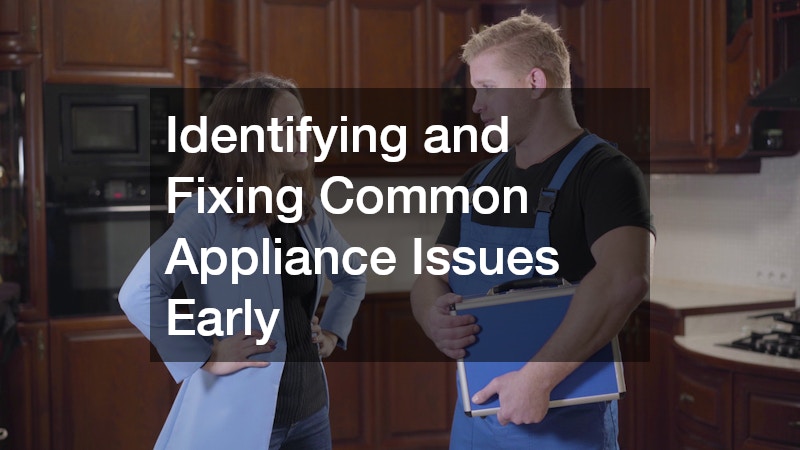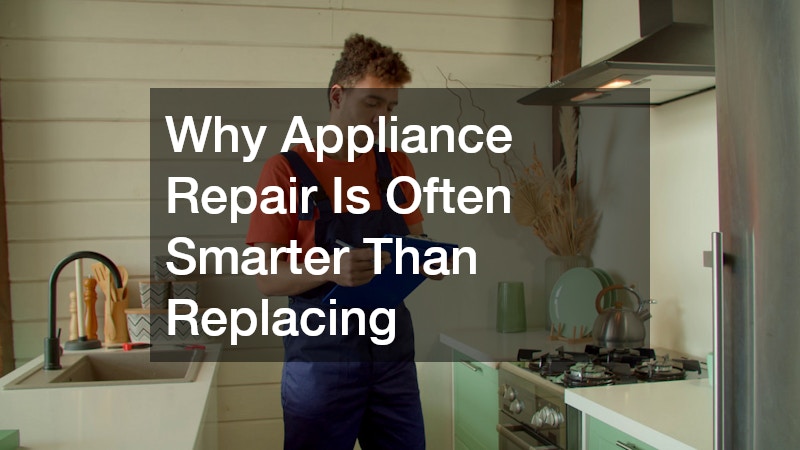The thought of replacing worn-out appliances rather than repairing them is increasingly common. However, this might not be the smartest decision from a cost, environmental, or longevity perspective. Appliance repair services often prove to be more beneficial in the long run, offering a more cost-effective, sustainable, and resource-saving alternative.
When Is It More Cost-Effective to Repair Rather Than Replace?
Evaluating Repair Costs vs. Replacement Costs
When assessing whether to repair or replace an appliance, cost is a critical factor to consider. Repair costs can often be significantly lower than replacement costs, especially when only minor fixes are required.
For instance, the average cost of repairing a refrigerator is about $200, which is far more economical than purchasing a new one, with prices often starting at $500.
To make a well-informed decision, it’s important to conduct a cost comparison. Consider the initial cost of the new appliance, potential financing charges, and the long-term savings of extended utility. By calculating these factors, consumers can better understand the financial implications of both options and make a choice that aligns with their budget.
Moreover, if the appliance is nearing its expected lifespan, spending a smaller amount on repairs can help extend its use without the immediate burden of a larger purchase. This approach ensures maximum value extraction from the appliance. Such financial prudence not only saves money but also encourages a habit of maintaining and respecting one’s belongings.
The Role of Warranty and Extended Warranty Services
Warranties can play a major role in the decision-making process between repairing and replacing appliances. Many appliances come with warranties that cover certain types of repairs, which effectively reduce or eliminate repair costs. Extended warranty services provide additional coverage beyond the standard warranty period, offering further protection.
Utilizing warranties efficiently involves understanding the terms and benefits when purchasing an appliance. Consumers should be aware of the coverage duration and the parts and services included, ensuring they can capitalize on these benefits when repairs are needed. This forethought can prove invaluable when an unexpected malfunction occurs, saving significant amounts of money.
Environmental Benefits Associated with Appliance Repair
Reducing E-Waste Through Repair
The rising amount of e-waste is a pressing concern globally, and repairing appliances can contribute significantly to its reduction. By opting for repairs instead of replacements, consumers can prevent numerous appliances from ending up in landfills. This decrease in e-waste positively impacts the environment by reducing pollution and preserving natural habitats.
Electronics contain harmful substances such as lead, cadmium, and mercury, which can leach into soil and water systems if not disposed of properly. Repairing appliances helps minimize the introduction of these toxic elements into the ecosystem. Moreover, recycling or reusing components through repair processes supports the responsible use of existing resources.
Repairing appliances supports a circular economy by reintroducing products back into the market for continued use. This contrasts with the linear ‘take-make-dispose’ economy, which contributes to depleting finite resources. Embracing repair over replacement aids in the effort to create more sustainable consumption patterns globally.
Sustainability and Resource Conservation
Sustainability is a crucial consideration when deciding between repairing and replacing appliances. The manufacturing of new appliances consumes considerable raw materials and energy. By choosing to repair, consumers reduce demand for new products, which decreases the strain on manufacturing processes and supports sustainable production efforts.
In addition to conserving raw materials, repairs result in lower overall energy consumption. Producing a new appliance continuously requires more energy than repairing an existing one. Thus, opting for repairs helps conserve valuable energy resources, contributing to a smaller carbon footprint and a more sustainable environment.
Engaging in repair practices also encourages enterprises to innovate in maintenance services, expanding their sustainable business models. Numerous repair options diversify consumer choices, fostering a repair-friendly market that prioritizes resource conservation. As consumers embrace sustainable actions, they not only benefit themselves but also contribute to preserving the environment for future generations.
Repair Enhances the Lifespan of Appliances
Regular Maintenance and Its Impact on Appliance Longevity
Regular maintenance plays a vital role in extending the lifespan of appliances. Simple practices such as cleaning filters, checking seals, and inspecting cords can prevent minor issues from escalating into major problems. These maintenance habits keep appliances running efficiently, often preventing premature replacements.
Conducting routine maintenance checks allows potential issues to be addressed before they become severe. When appliances are regularly serviced, they operate with improved efficiency, which translates to cost savings on energy bills. Such proactive measures reflect a commitment to preserving valuable home investments.
Identifying and Fixing Common Appliance Issues Early
Spotting and fixing minor appliance issues early can save consumers from costly repairs or replacements down the line. A tell-tale sign of an impending problem, such as unusual noises, can be an indicator to seek repair services promptly. Early intervention can prevent smaller concerns from developing into major failures.
Addressing issues promptly also supports safety within the home. Appliances in disrepair can pose risks such as electrical faults or leaks. By taking swift action to repair, consumers not only prolong appliance life but also maintain a safe living environment.
Repair-minded practices enhance the lifespan of appliances, dovetailing with regular maintenance and early problem detection. Through these efforts, consumers can maximize the utility and efficiency of their home appliances. Ultimately, choosing repair over replacement is a thoughtful approach that aligns economic, environmental, and practical benefits.




